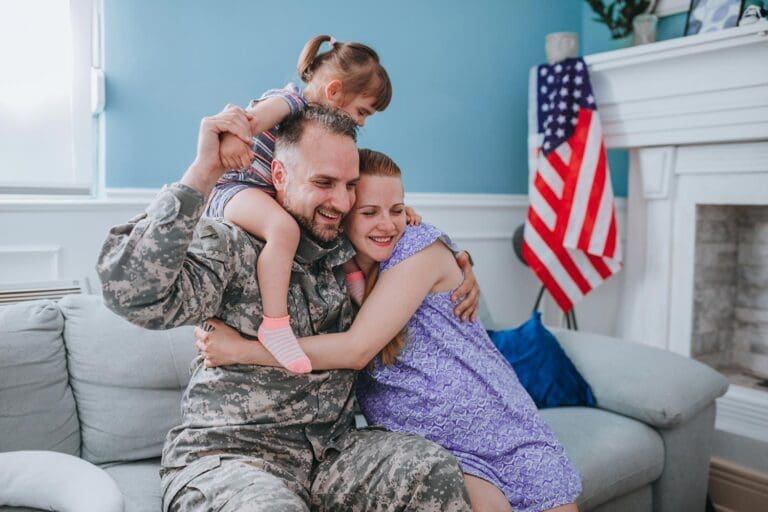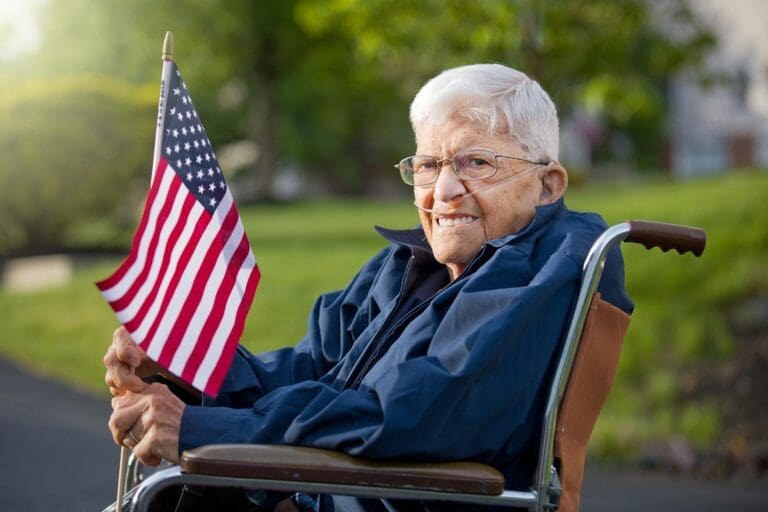
Comprehensive Guide to Chapter 1606 Reserve Montgomery GI Bill Benefits
The primary motivation for many to join the military is to serve in the country’s defense. There are numerous other factors that influence the decision to serve, such as the wide range of benefits offered to Servicemembers and their families. The Veterans Administration (VA) serves to help the families of those who served in wartime rebuild their lives following conflicts and has since expanded into the organization dedicated to serving military personnel and their families in a variety of ways. One of these is education benefits. The Servicemen’s Readjustment Act of 1944, also known as the “GI Bill”, is legislation that provides for the tuition and material expenses for education and secondary training for those who served in the military. The GI Bill encompasses numerous subsections, each of which outlines specific educational benefits that military personnel can claim based on their length and type of service. Under the Montgomery GI Bill, specifically Chapter 1606, this section provides education and training benefits to eligible members of the Selective Reserve. Reservists who commit to six years of duty meet the Reserve GI Bill eligibility requirements. Furthermore, the Reserve GI Bill eligibility requirements are not as strict as some

The Complete Guide to Chapter 30 Montgomery GI Bill for Active Duty
The Servicemen’s Readjustment Act of 1944 was the country’s effort to give back to the military personnel of the US Armed Forces by providing certain benefits that allowed them to pursue higher education and training after military service with the intent to re-enter civilian life with marketable skills. Known as the GI Bill, this legislation has undergone numerous changes over the years, significantly evolving from its original form. Presently, the GI Bill comprises two main sections: the Montgomery GI Bill, or Chapter 30, and the Post-911 GI Bill, or Chapter 33. These two portions of the Act apply to different military personnel in various situations and provide different educational benefits in the form of Montgomery GI Bill monthly payments for tuition and a stipend for education materials, such as books. Certain types of military service receive different amounts, the duration of benefits, and a variety of other factors. Montgomery GI Bill eligibility requirements also differ from the requirements of other portions of the bill. This article examines the Montgomery GI Bill for active duty, its eligibility requirements, Montgomery GI Bill monthly payments, and explains the benefits that eligible personnel can receive toward their education. Overview of

3M Earplug Lawsuit Update: Latest News and Settlement Information
The company originally known as the Minnesota Mining and Manufacturing Company, now known as 3M, produces a wide variety of products in different fields of industry, including worker safety and consumer goods. They offer many products in everything from electronics to various protective equipment and devices. It began its life as a mining venture in Minnesota in 1902 and later evolved into a variety of other manufacturing industries. By the 21st century, the company was well known for its devices in the area of personal safety and medicine, as well as electronics. One of its offerings included combat safety earplugs, which were issued to the military and intended to prevent hearing loss from close-range loud sounds from weapons fire and combat. Unfortunately, a defective design in one type of earplug issued to military personnel allowed the earplug to come loose in the ear canal, which allowed loud sounds to permeate to the eardrum. Many Servicemembers found themselves suffering from ailments such as hearing loss and tinnitus. Consequently, recent 3M earplug lawsuit updates state that 3M faced numerous class action lawsuits alleging damages stemming from the design. Read on to learn more. Background of the 3M Earplug

Exploring Medicare Options for Veterans: Eligibility, Plans, and Benefits
Many older Veterans and Servicemembers often have many questions about navigating the Medicare system and the Veterans Administration healthcare system. It is possible to have and utilize both Medicare and VA benefits simultaneously, thereby offering the Veteran a wider range of options regarding to receive care. The best Medicare plan for Veterans do just that. While Medicare frequently enhances VA benefits with its flexibility and convenience, not all Medicare for Veterans plans align perfectly with VA benefits. This article gives a brief overview of different Medicare for Veterans plans, VA Medicare eligibility and how they can work hand-in-hand with VA benefits. Understanding Medicare and VA Health Benefits Coordination Medicare for Veterans is its own arena of government healthcare and has its own factors to consider under the overall Medicare coverage. Medicare, a federal health insurance program, offers coverage to individuals 65 and above, or those under 65 with specific disabilities, and comprises four distinct parts: Part A: hospital insurance, covering hospitalization, home or skilled nursing, and hospice. Part B: medical insurance, which covers doctor services, outpatient care, medical supplies, and preventative services. Part C: Medicare Advantage plans for Veterans, which provide extra private insurance options that

TRICARE for Dependents: A Comprehensive Guide to Health Insurance for Families of Military Members
When the decision was made by the Department of Defense to offer Servicemembers certain benefits for their service, such as healthcare and education, this consideration was also extended to the families of Servicemembers as well. The DoD quickly realized that supporting Servicemembers alone was not enough and that mission readiness and work-life balance for all US Armed Forces members depended on their families and dependents. For months at a time, many are deployed on active-duty missions, missing out on significant family events. It seemed only natural to extend these benefits to the families of Servicemembers in a show of gratitude for this sacrifice. The Veterans Administration extended the TRICARE insurance system to the dependents of Servicemembers, by providing family members of active-duty Servicemembers, retirees, and eligible members of the National Guard and Reserve access to healthcare benefits through the military health system. Read on to learn more. What is TRICARE for Dependents? TRICARE refers to a managed healthcare program offered through the Veterans (VA) to Servicemembers and their families. It offers coverage for primary care management, preventative and routine checkups, hospitalization, prescriptions, and, in some cases, dental and vision coverage. You can learn more about TRICARE

TRICARE for Retired Military Members: A Comprehensive Guide
The TRICARE system is one of the many managed healthcare plans offered by the Veterans Administration (VA) Healthcare System, intended to provide comprehensive medical coverage to Servicemembers, Veterans, Retirees, and their families. TRICARE insurance offers a variety of different plans for military personnel, based on their type and length of service in the US Armed Forces. You can read more about the TRICARE system in general at this link. Those who have retired from service may also utilize TRICARE. The various plans offered to retirees through the TRICARE insurance system are numerous and come with a variety of different benefits. Read on to learn more. What is TRICARE for Retired Military Members? TRICARE for retired military members is a system of managed care for US Armed Forces personnel that operates through a variety of VA-funded hospitals and clinics, as well as civilian medical professionals who partner with the VA system. TRICARE for retired military members involves a series of different TRICARE insurance plans that cover both the retiree and their dependents. The TRICARE retired benefits might differ from TRICARE plans for active duty and overseas Servicemembers. Most TRICARE insurance plans cover preventative and ongoing health maintenance, prescriptions, dental

TRICARE for Active Duty Service Members: Your Complete Guide to Benefits, Eligibility, and Enrollment
The Veterans Administration provides several services and benefits to military personnel, the more well-known being its healthcare system. For many who served in the Armed Forces, VA healthcare is free and requires little to no copayments. The VA healthcare system has many aspects, each branch pertaining to a version of its healthcare based on a person’s service record or their relationship to a Servicemember. The VA TRICARE system is one such program of the VA healthcare system. TRICARE is the program for active duty Servicemembers, active duty family members, National Guard and Reserve members and their family members, retirees and retiree family members, survivors, and certain former spouses worldwide. It synthesizes many resources in the VA healthcare system, such as hospitals and clinics, as well as partnerships with civilian healthcare providers and pharmacies. The goal of this system is to provide uniformed members of the military a convenient and affordable healthcare system that offers as many healthcare benefits and opportunities to the military personnel and their families as possible through a variety of TRICARE plans. You can read more about the TRICARE system in this article. What is TRICARE for Active Duty? TRICARE for Active Duty

Comprehensive Guide to VA Homeless Programs and Housing Assistance for Veterans
The decision to send soldiers off to war is never an easy one, especially considering our understanding of how combat and war situations can affect Servicemembers. For many years, the military exposed soldiers to the horrors of war, sent them home with little to no help, and expected them to resume their lives, families, and careers as if nothing had changed. This forced many Veterans to conceal their physical and mental service-related illnesses, often resorting to self-medicating with substances and drugs as a coping mechanism. Sadly, Veterans suffering from post-traumatic stress disorder or other mental illnesses often find themselves homeless with few resources. Other Veterans may become unexpectedly homeless due to a variety of circumstances, such as being away from their careers for an extended period or experiencing unexpected emergencies. The Veterans Administration (VA) seeks to address this problem by offering VA homeless programs that seek to provide financial assistance, career training, housing vouchers, transitional housing, and emergency benefits to qualifying Servicemembers and Veterans who are in need of housing assistance and meet VA homeless assistance eligibility. If you are a Veteran or the family member of a Veteran experiencing homelessness and want to know more about

San Diego MWR Tickets: Your Guide to Discounted Military Recreation Options
The Morale, Welfare, and Recreation (MWR) program of the United States military is an important and necessary part of mission readiness for Servicemembers. Most military professions are rewarding but also very high-stress and, in many cases, dangerous. Frequent deployments mean time away from families, feelings of isolation and loneliness, and can even cause marital problems and issues with relationships with children. The MWR program is designed to help Servicemembers combat these problems by optimizing time spent with loved ones while they are home. These programs provide discounted, and in some cases, free programs for the entire family that range from leisure activities, recreation, travel, family enhancement and enrichment programs, and a variety of other services. Many locations around the country offer special services to military families, and many destinations have special activities specifically for MWR programs. If you want to read more about MWR in general, you can do so at this link. If you are visiting San Diego anytime soon, you will be pleased to know that there are a variety of San Diego MWR tickets for attractions around the city that are worth looking into. What Are San Diego MWR Tickets and How Do They

Your Guide to Key West MWR: Programs, Eligibility and Ticket Information
The Morale, Welfare, and Recreation (MWR) program is a quality of life and readiness program designed to support the needs of the military community, including Veterans, civilian employees, retirees, and, of course, Servicemembers and their families. The mission of the program is to help Servicemembers relax, have fun, and form bonds with their families in an effort to help maintain work-life balance and mission readiness, as well as provide emotional support for military personnel. One of these benefits is discounted rates, special perks, and offers on travel and lodging. Certain destinations offer military-only rates, tickets to attractions and theme parks, and special recognition days for military members. Key West, Florida, a popular vacation destination, has several Key West MWR programs, with discounted MWR Key West tickets to many destinations, that military families might want to consider for their next vacation. Key West MWR: What It Offers and Why It Matters MWR programs, which include recreation, family and youth programs, and entertainment on top of travel and leisure activities, all seek to serve military families by providing discounted access to relaxing, enjoyable activities to connect with their families. You can read more about MWR in general at this
